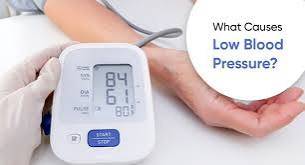Low blood pressure, also known as hypotension, occurs when the force of blood flowing through the arteries is lower than normal. While high blood pressure is a well-known health concern, low blood pressure can also have adverse effects on overall health and well-being. Common symptoms of low blood pressure include dizziness, lightheadedness, fainting, fatigue, blurry vision, and nausea.
There are various causes of low blood pressure, including dehydration, heart problems, endocrine disorders, nutritional deficiencies, and neurological conditions. Certain medications, such as those used to treat high blood pressure, heart conditions, or depression, can also lead to low blood pressure as a side effect. In some cases, low blood pressure may be a sign of an underlying health issue that requires medical attention.
Diagnosis of low blood pressure typically involves measuring blood pressure readings using a sphygmomanometer. A blood pressure reading below 90/60 mmHg is generally considered low, but the threshold may vary depending on individual circumstances and underlying health conditions. Additional tests, such as blood tests, electrocardiogram (ECG), echocardiogram, or tilt table tests, may be conducted to determine the cause of low blood pressure.
Treatment for low blood pressure focuses on addressing the underlying cause and alleviating symptoms. Lifestyle modifications, such as increasing fluid and salt intake, wearing compression stockings to improve circulation, and avoiding sudden changes in posture, can help manage mild cases of low blood pressure. In cases where low blood pressure is caused by an underlying medical condition or medication, adjustments to treatment plans may be necessary.
In conclusion, low blood pressure can impact daily functioning and quality of life, but with proper management, most individuals can effectively control their symptoms and prevent complications. Regular monitoring of blood pressure, seeking medical advice for persistent symptoms, and maintaining a healthy lifestyle are essential steps in managing low blood pressure and promoting overall cardiovascular health. If you experience symptoms of low blood pressure, it is important to consult a healthcare provider for evaluation and personalized treatment recommendations.



No comments yet
Be the first to share your thoughts!